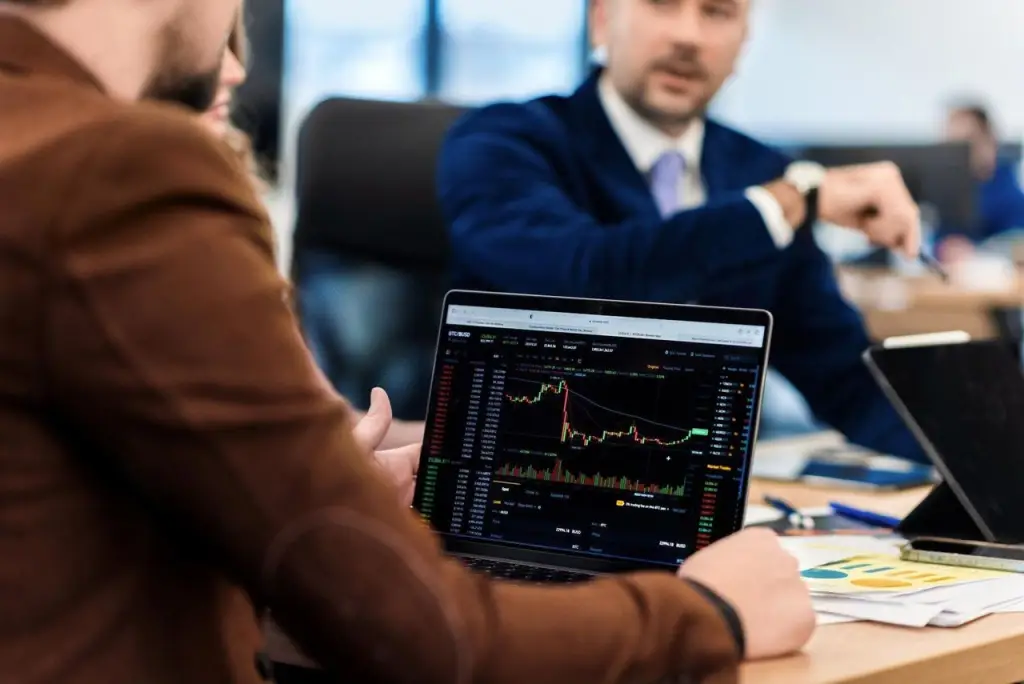How to become a trader? Many beginners see it as an opportunity to make money, but it’s important to realize that behind every profitable trade lies a wealth of knowledge and market understanding. Trading is a world where knowledge creates opportunities and a lack of discipline creates frustration. For this reason, high-quality training is an absolute priority for anyone who wants to successfully enter the world of financial markets.
Today, trading is more popular than ever because it allows you to profit from global economic trends and be independent of traditional ways of making money. At the same time, it’s important to understand that this isn’t a lottery, but a complex discipline that requires both theoretical knowledge and practical skills.

How to Become a Trader from Scratch: A Step-by-Step Plan
A trader’s journey must start with a solid foundation. First, decide what you want to trade: stocks, currencies, cryptocurrencies. Each instrument has its own characteristics. For example, the stock market is exposed to corporate news, while cryptocurrencies are more volatile and depend on sentiment. Step by Step:
- Study the Theory. Understanding the basics is the key to success. What is a trend? How do supply and demand work? It’s worth starting by studying the basics of financial markets. Reading books like “The Stock Market for Beginners” and online resources is a good place to start.
- Select a trading instrument. Decide whether you’re most interested in the foreign exchange market (Forex), the stock market, or the cryptocurrency market. For example, forex trading offers high liquidity and 24-hour trading, while volatility in the stock market may be lower.
- Open a demo account. Practice risk-free. With a demo account, you can learn the trading interface and test different strategies without investing. This is an essential step for anyone who wants to become a trader from scratch.
- Trading psychology. It’s extremely important to study emotions and understand how fear and greed influence decision-making. Without self-control, trading can become more of a gamble than a strategic endeavor.
Where can you learn trading and which courses should you choose?
 If you really want to understand how to become a trader, you must choose high-quality training. The course offering is diverse, and the choice is not easy:
If you really want to understand how to become a trader, you must choose high-quality training. The course offering is diverse, and the choice is not easy:
- Online trading platforms and courses. The best-known platforms include Coursera and Udemy. They offer courses designed by experts. These trading courses include basic theory and practical examples.
- Books and instructional videos. Read books like “Trading from Scratch” by Alexey Markov. Literature helps you understand the basics, identify common mistakes, and find ways to avoid them.
- YouTube videos of experienced traders can provide insight.
- Course selection. A good course includes the opportunity to interact with a mentor, feedback, and practical assignments. Always check the instructor’s qualifications and student reviews.
Understanding the Financial Markets: What Beginners Need to Know
Becoming a trader requires more than simply buying stocks or currencies. You need to understand how the financial market works and the differences between its various segments:
Currencies and the Stock Market. Forex is the most liquid market where currencies are traded in the world. It attracts traders because of the ability to trade 24 hours a day. At the same time, the stock exchange is a place where companies raise capital by selling shares.
Cryptocurrency trading is highly volatile, but it can also generate significant profits. Factors such as regulation and market activity must be taken into account.
Basic tools and terms. Beginners should familiarize themselves with concepts such as stop-loss, leverage, and margin trading. These tools allow them to manage risks and control losses.
Trading strategies for beginners: from simple to complex
Beginners often wonder how they can become traders while minimizing risks. It’s important to start with simple strategies and improve them gradually.
- Scalping. This strategy is based on quick trades with minimal profits. Suitable for anyone willing to spend a lot of time in front of a monitor.
- Swing trading. Suitable for those unable to follow the market around the clock. Swing traders hold positions for several days or weeks and profit from price fluctuations.
- Intraday trading. This approach closes all trades before the end of the day, minimizing the risks associated with overnight events.
The trend-following strategy is one of the simplest. A trader buys assets when the market rises and sells when it falls. It’s important to monitor indicators that confirm the strength of the trend and avoid “false breakout traps.”
Why it’s important to learn to trade in practice
Practice plays a crucial role in learning. Demo accounts and virtual trading help you understand how the market works and consolidate your knowledge without financial risk. Anyone who wants to become a trader should start with practice:
- Demo accounts. They allow you to familiarize yourself with the platform and test strategies. Practicing on a demo account is not just a game, but a training ground for developing decision-making skills.
- Real trading with minimal risks. After the demo account, it’s worth starting with minimal investments to get a feel for the real market, but without losing a lot of money in the initial phase.
Companies that offer trading platforms like MetaTrader or Thinkorswim have built-in demo versions. By practicing, you’ll not only improve your skills but also reduce the emotional pressure that many newbies feel when switching to a live account.
Conclusion
 How to become a trader and succeed? You must constantly learn, accept mistakes as part of the process, and focus on the long-term goal. Trading requires discipline, analytical skills, and, above all, practice.
How to become a trader and succeed? You must constantly learn, accept mistakes as part of the process, and focus on the long-term goal. Trading requires discipline, analytical skills, and, above all, practice.

Start small: open a demo account, read a few books, and experiment with small amounts. Becoming a trader is a long road that requires patience, but only those willing to go the whole way will reach true heights. The most important thing is to start and keep going, despite the difficulties.
 en
en  ru
ru  de
de  ar
ar  es
es  hi
hi  fr
fr  nl
nl  it
it  pt
pt  el
el 









